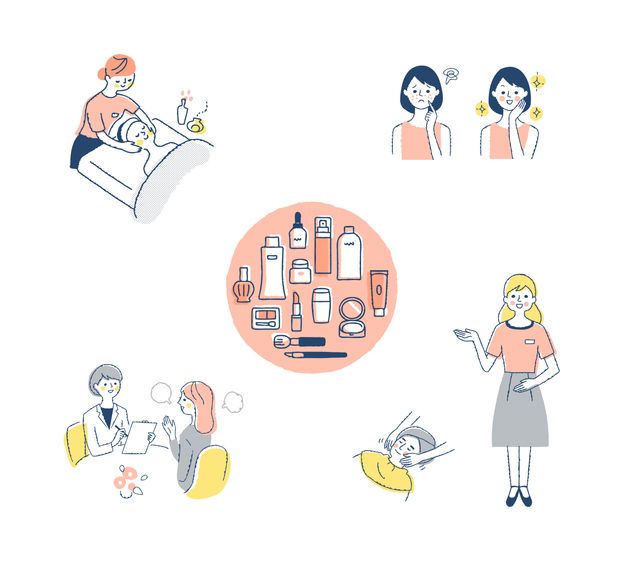
Book Now to Experience
Acne Treatment
1 Minute Self-Registration
Date should not be before minimal date
Author: Leila Tan|Updated: 23 July 2024
Having acne prone skin can be challenging and maintaining and treating can be overwhelming with many options available. Keep on reading this article to find more about acne and find the right treatment for you.

1
What is acne?
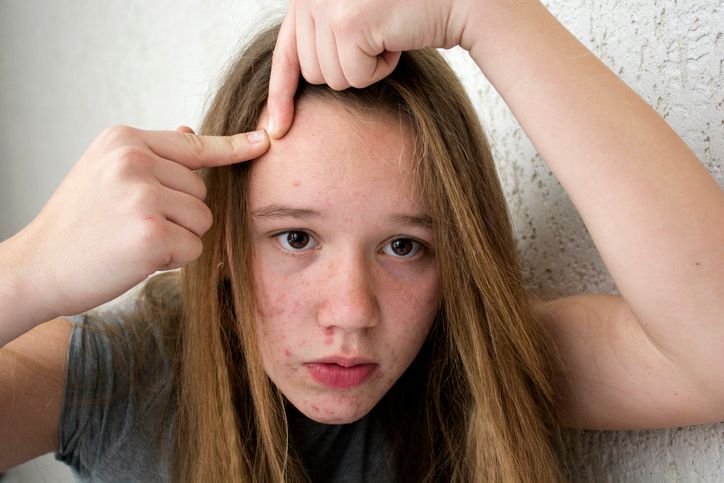
Acne is a skin disorder where your hair follicles become clogged with oil and dead skin cells, which forms the acne. The eruptions typically affect the face, but they can also affect the back, chest, and shoulders. Acne is also an inflammatory condition which can affect the skin's sebaceous (oil) glands and hair follicles, which are known to be home to fine hairs.
Most people's acne usually disappears by the time they are in their thirties, although some people still experience acne in their forties and fifties. Although there are effective treatments for acne, the condition may continue while the lumps and pimples heal slowly, and just as one starts to go, another one seems to appear.

2
Who is Prone to Acne?
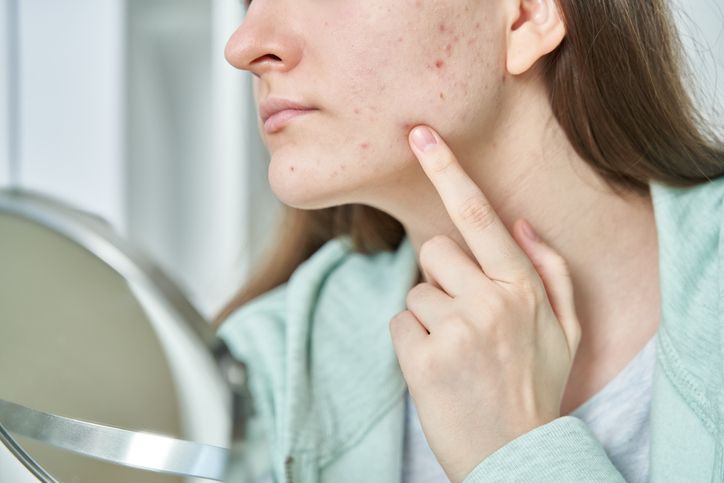
Acne affects people of all ethnicities and ages, but it is most prevalent in adolescents and young adults. Males are more likely than females to get acne during the teenage years and acne can persist into adulthood, and when it occurs, women are more likely to experience it.
Read More

3
Types of acne
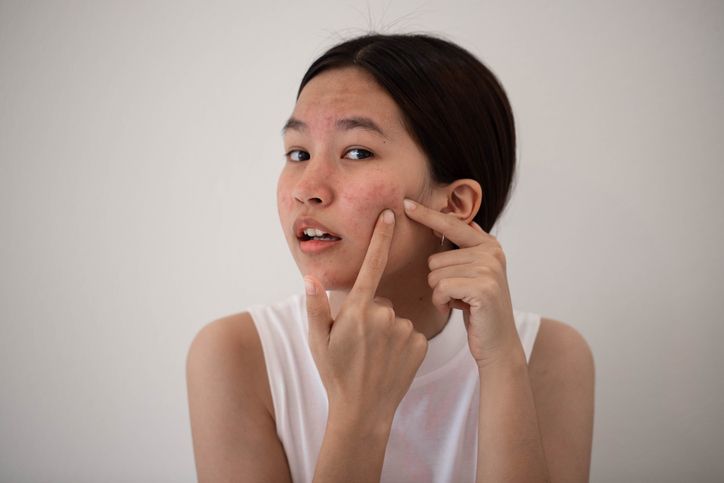
Whiteheads
A white lump is created by clogged hair follicles that remain beneath the skin.
Blackheads
Plugged follicles that break open as they reach the skin's surface. They are not unclean and the reason they appear black on the skin's surface is that the air taints the sebum.
Papules
Inflamed lesions that typically take the form of tiny, pink pimples on the skin and are touchably sensitive.
Pustules or pimples
Papules topped by lesions filled with pus that are white, yellow, or red at the base.
Nodules
Deeply embedded solid lesions that are large and painful.

4
Causes of Acne
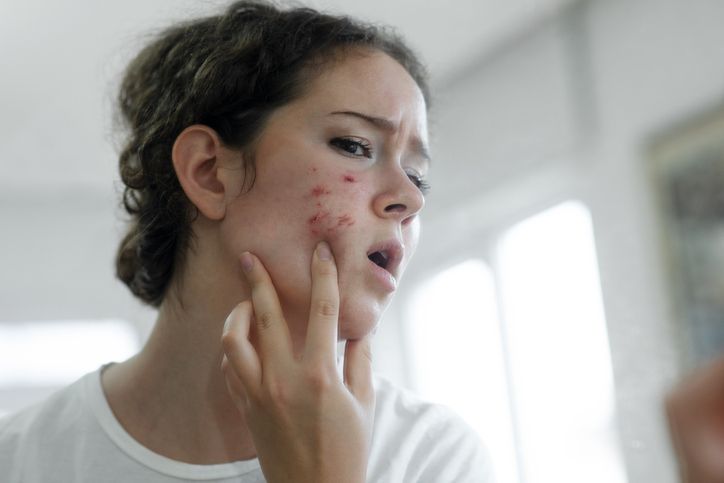
Hormone
Acne may result from an increase in androgens, or more known as male sex hormones. They typically rise during puberty in both boys and girls, causing the sebaceous glands to grow and produce more sebum. Acne can also be brought on by pregnancy-related hormonal changes.
Family history
If either of your parents had acne, researchers think you could be more likely prone to acne as well.
Diet
According to studies, eating certain foods, such as carbohydrate-rich foods like bread, bagels, and chips, may make acne worse. There is still some research need to be done in order to know whether a particular dietary limitations will help persons with acne.
Medications
Acne can be brought on by some medicines, including hormone-containing, corticosteroid-containing, and lithium-containing ones.
Stress
Although stress doesn't cause acne, it can exacerbate an existing case if you already have acne.
Age
Acne can affect anyone at any age, although teens are more likely to have it.

Book Now to Experience
Acne Treatment
1 Minute Self-Registration
Date should not be before minimal date

5
Myths about Acne
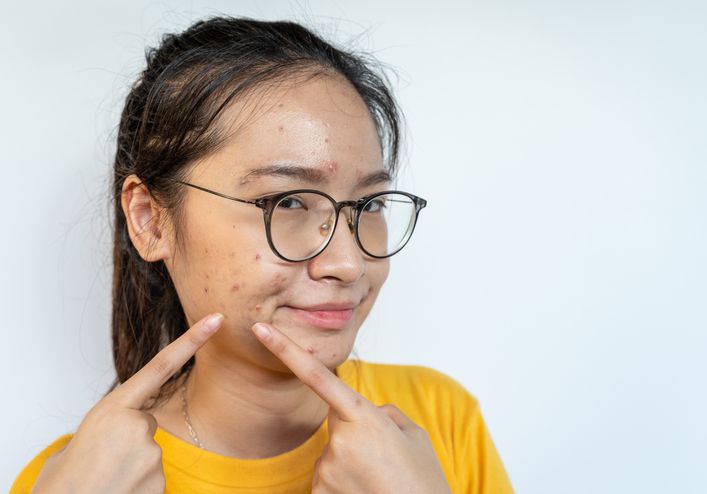
Fatty foods and chocolate can cause acne
Consuming greasy food or chocolate has very little to no impact on acne.
Hygiene
Skin that isn't clean doesn't get acne. In actuality, overly vigorous skin cleansing with abrasive soaps or chemicals can aggravate acne by irritating the skin.
Cosmetics
Cosmetics don't always make acne worse, especially if you use noncomedogenic (oil-free) makeup and take it off frequently. Fortunately, cosmetics don't affect how well acne medications work.

6
Diagnosis
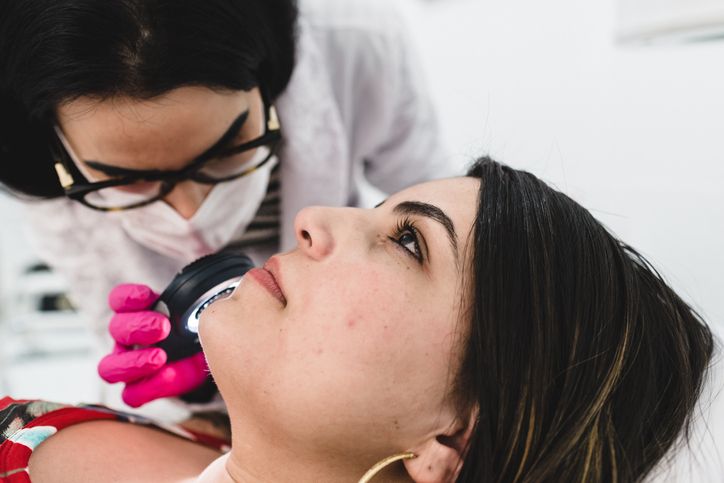
A recommended next step if you think you have acne is to see a board-certified dermatologist for a diagnosis. A dermatologist can diagnose you based on an examination of your skin and type of acne. To create a treatment strategy that is effective for you, they can assist in determining the sorts of lesions and their severity. From moderate acne to severe acne, there is treatment for all so do not worry much.
Read More

7
Acne Treatment - New Beauty
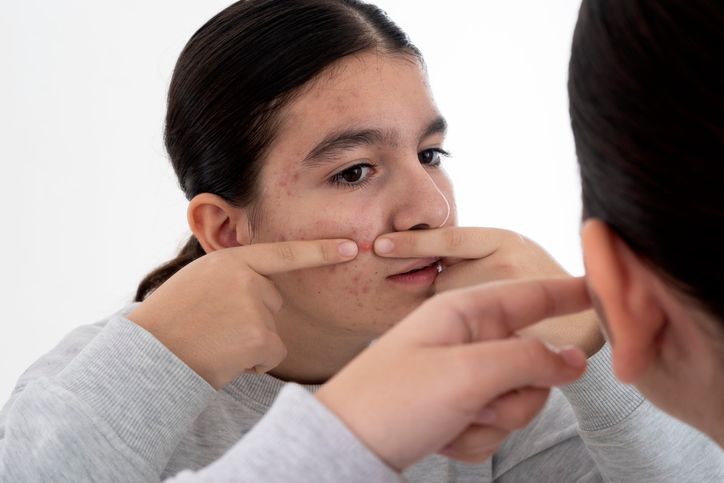
The Acne Treatment is a new treatment from New Beauty for skin that is prone to breakouts. First, the dual spiral suction plus drainage technology exfoliates dead skin cells and clears clogged pores at the same time, reducing acne infection and inflammation.
The face is then treated with a moisturizing serum to control sebum output and encourage collagen synthesis. Future breakouts of acne are less likely if there is insufficient oil production. Acne, blemishes, blackheads, whiteheads, pockmarks, enlarged pores, dry skin, acne scars, and dull skin tone are all goals of the acne treatment. Seize the opportunity to revive bright skin and increase your self-esteem!
Benefits of this treatment
Removes Dead Skin Cells: Excess dead skin cells are removed using dual spiral suction and drainage technology to keep pores from becoming clogged in the future.
Hydrating Essence: A medical-grade moisturizing serum may penetrate the deepest layers of the skin to nourish and hydrate the skin tissues while also soothing acne-prone skin. Moreover, it soothes the sebaceous glands to stop overproduction of oil.
Visible Results: You will have less acne breakouts, acne scarring, and various types of acne as the treatment goes on. See as your skin becomes healthier, more moisturized, and lighter with less of an oily sheen!
Non-invasive Treatment: The acne treatment is non-invasive, so there is no need for oral antibiotics, surgery, incisions, injections, or acne medication. Most persons with moderate to severe acne, according to our in-house beauticians, are candidates for this treatment.
How this treatment works
Step 1: The consultant will outline the procedure's steps and theoretical underpinnings. The beauty therapist then performs a patch test to make sure the probe hasn't caused any irritation.
Step 2: The vacuum microdermabrasion and deep cleaning process is started by the twin spiral suction/drainage probe. Exfoliation is used to remove dead skin cells, any excess oil, and grime that have been trapped in the pores and on the surface of the skin. The acne inflammation and infection should gradually subside if the pollutants are removed.
Step 3: To balance the water-to-oil ratio, calm the oil glands from future overproduction of oil, and promote collagen growth, the moisturizing serum is injected into the unclogged skin. This results in treating acne, fewer new outbreaks, and a finer complexion for the skin.
How to prepare for this treatment
Before Treatment: * Use sunscreen with SPF 30+ before receiving therapy. * Prior to treatment, limit your skin exposure to the sun. * During two weeks prior to and following the procedure, refrain from using any laser, IPL, radio frequency, or other skin care treatments on the treated region.
After Treatment: * To continue shielding your skin from the sun, use a sunscreen with an SPF of 30 or higher. * Stop using skin care products containing AHA/BHA, exfoliants, and whitening agents for two weeks after treatment to prevent skin sensitivity. *Follow consistent skin care and cleaning habits. Choose skincare products with straightforward and gentle ingredients. Do not scrub your face vigorously.

8
Other acne treatment - Topical medications
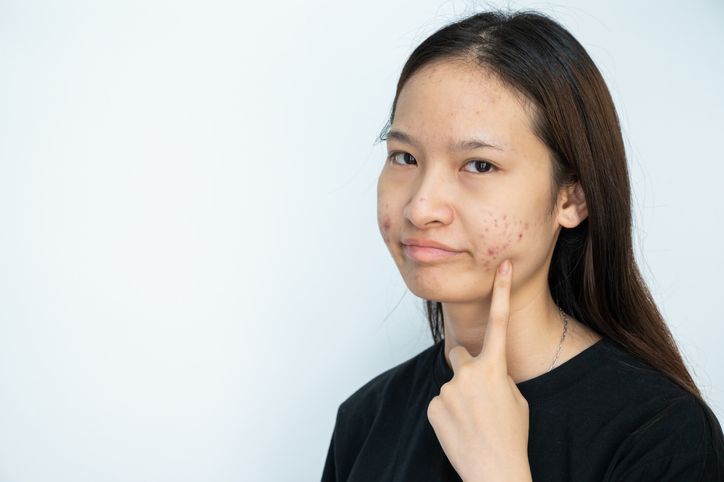
Benzoyl peroxide
Benzoyl peroxide is a well-known component for treating acne. This component, which is offered in over-the-counter (OTC) gels, cleansers, and spot treatments, comes in various doses for minor to moderate outbreaks. By destroying germs under the skin and assisting the pores in shedding dead skin cells and extra sebum, benzoyl peroxide treats and prevents acne (oil). Benzoyl peroxide has limitations, despite the fact that it can effectively remove bacteria and dead skin cells that clog your pores.
Retinoids
All forms of acne, including blackheads, whiteheads, cysts, and more, are prevented by retinoids. They operate at the cellular level to encourage your skin barrier and cell turnover rate, lessen inflammation, and produce less oil which are all essential activities for maintaining clear pores and acne-free skin. Moreover, retinol and retinoids can aid in the fading of stubborn acne scars and blemishes that persist after an outbreak. In terms of treating acne, experts concur that prescription-strength retinoid creams and gels (such as tazorac and tretinoin) work the best.
Azelaic acid and salicylic acid
Wheat, barley, and rye are the natural sources of azelaic acid, a mild acid. It has many advantages, including the ability to cure pigmentation, rosacea, whiteheads, blackheads, acne, and congested oily skin. Also, it can eliminate the acne-causing bacteria that feeds on sebum to produce waste products and fatty acids that can aggravate inflammatory acne, and aggravate inflammation.
A beta hydroxy acid (BHA) called salicylic acid is generated from the bark of willow trees. It is primarily used to treat mild acne, blackheads, and whiteheads but can also be used to treat psoriasis and dandruff. It is renowned for its spot-zapping and exfoliating properties. Due to its capacity to dissolve dead skin cells and remove any debris or "glue" that may be the source of spots, breakouts, and blemishes, this oil-soluble acid can effectively deep clean pores.
Azelaic acid and salicylic acid is a great option for treating the hormonal acne or cystic acne, blackheads, and the redness and swelling of rosacea since it possesses antibacterial and anti-inflammatory characteristics.

Book Now to Experience
Acne Treatment
1 Minute Self-Registration
Date should not be before minimal date

9
Other acne treatment - Oral medications
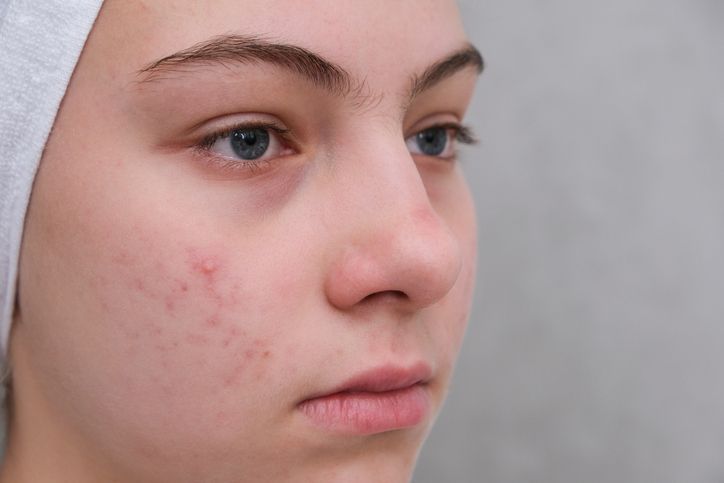
Antibiotics
Nodules, cysts, and other deeply embedded nodules and lesions of acne are occasionally treated with oral antibiotics. These imperfections may be brought on by bacteria that infect your skin beneath the surface. Antibiotics eliminate these germs, which lessens swelling and inflammation and clears the pores.
Antibiotics typically begin to clean skin in four weeks, and therapy may extend for months. Antibiotic-resistant acne bacteria could emerge, increasing the likelihood that blemishes will return.
Anti-androgen agents
Anti-androgen therapy describes the use of medication by women to lessen the skin-damaging effects of male sex hormones like testosterone. Men's skin issues are not appropriate candidates for anti-androgens.
Isotretinoin
Your doctor might recommend the oral retinoid isotretinoin for cases of acne that are more severe. By decreasing the quantity of oil that skin glands produce and eliminating the germs that live there, isotretinoin helps to unclog clogged pores. With oral isotretinoin, it could take several months before your skin starts to improve and the physicians advise waiting at least two months before evaluating the outcomes.
Even in those whose pimples, including nodules and cysts, have previously resisted treatment, isotretinoin therapy has been demonstrated to resolve acne. The drug may not be effective for everyone, and side effects may include dry skin and increased sun sensitivity.

10
Home remedies for Acne
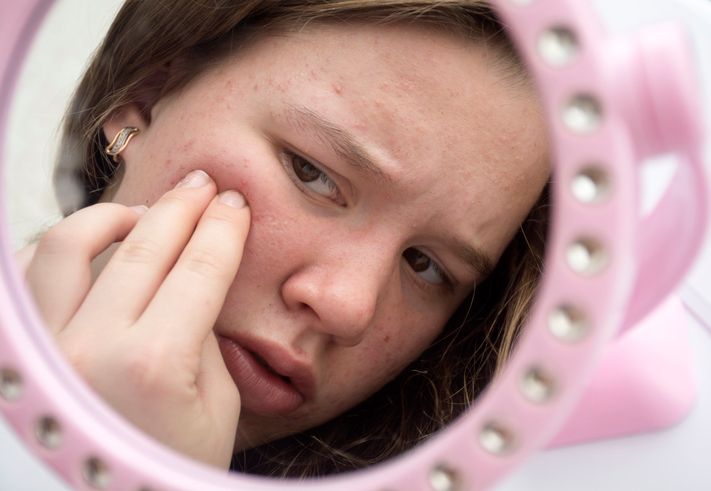
A person's acne lesions and sores could get better with the use of some home remedies. Herbal lotions and gels, essential oils, nutritional supplements, and lifestyle modifications are examples of home treatments for acne.
Tea tree oil
As P. acnes the bacteria that causes acne can be eradicated by tea tree oil which is a natural antibacterial and anti-inflammatory oil. The antibacterial properties of tea trees were discovered by the researchers in order to help the tea tree oil products to lessen the prevalence of acne lesions in people. Due to its anti-inflammatory characteristics, tea tree oil can also aid in prescription acne treatments which helps in reducing the inflammation and redness of acne.
Aloe vera
Because of its inherent antibacterial and anti-inflammatory properties, aloe vera may lessen the look of acne and stop any future breakouts. Aloe vera is also known as a fantastic skin moisturizer and protector since it includes sugar molecules, amino acids, and zinc. Those who experience dry skin after using other anti-acne solutions should especially consider using aloe vera. After washing with soap twice a day, one should apply a thin layer of cream or gel on acne sores.
Honey
Honey has been used to treat skin disorders for hundreds of years because it is rich in antioxidants that can unclog pores. Although there is proof that honey has distinct antibacterial properties, research could not uncover any compelling data about honey's ability to treat acne in particular. To use honey, try to apply a small amount of honey to zits with a clean finger or cotton pad. If not, incorporate honey into a face or body mask.
Green tea
It is known that high levels of catechins, which is a class of polyphenol antioxidants, are present in green tea.
Some acne sufferers have too much sebum (natural body oils) and not enough antioxidants in their pores. Chemicals and waste materials that can harm healthy cells are broken down by the body with the aid of antioxidants. Researchers claim there is now insufficient data to recommend either drinking green tea or applying green tea extract to the skin to see the results.

11
Habits that can reduce acne
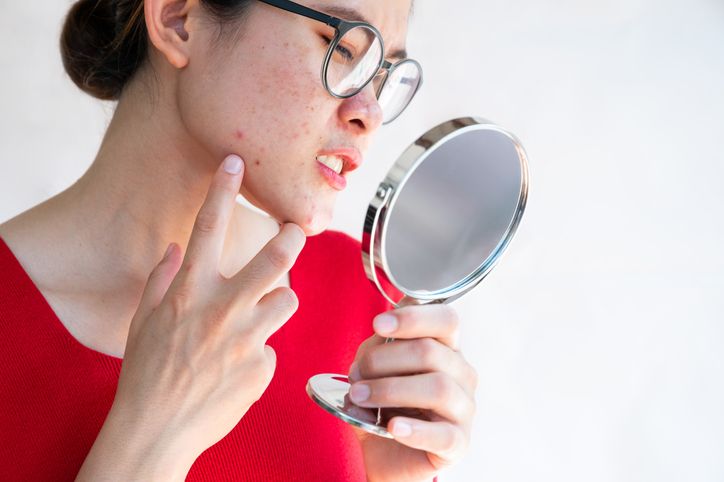
Do not touch pimples. Although it may be very alluring, touching an acne sore will irritate the skin, possibly exacerbate the condition and transmit the acne to other places especially if you have sensitive skin. Touching, pressing, squeezing, or popping acne lesions can also spread the infection by adding additional bacteria to the area. Squeezing a pimple can force bacteria and other debris deeper into the skin, making the place worse than it was initially.
Drink water. Dry skin has a higher risk of irritation and damage, both of which are known to exacerbate acne. Being hydrated also helps to heal the wounds and helps new skin cells form properly. Since each person's water requirements differ based on their age, level of activity, climate, and any underlying medical issues, there is no set daily recommendation for water consumption.
Stress free. Androgen levels rise in stressful conditions. Acne risk is increased by androgen's stimulation of hair follicles and oil glands in pores so a result you may developed acne. Try to do some activities that can help you to reduce stress.

12
Conclusion
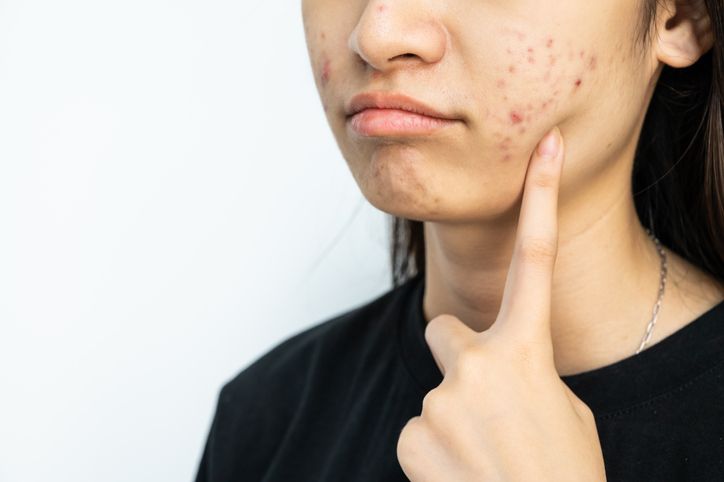
There are many different treatments available for treating acne. However, not every treatment will be effective for every patient or situation. A dermatologist can assist you in developing an acne treatment strategy that is effective for your skin type and lessens scarring if you continue to suffer uncomfortable or recurrent outbreaks.
FAQ
Why do some adults get acne later in life?
Some people manage to avoid developing acne during youth only to discover that they do so in their twenties or even their forties. This is typically experienced by women and is caused by fluctuating hormone levels. When women reach middle age and enter the menopause, adult acne frequently develops. Oestrogen levels drop during this time, which could lead to a rise in testosterone, which controls the production of sweat and sebum.
Can acne be caused by makeup?
Even Though it is not often but certain makeup products have the potential to make acne worse. These items contain comedogenic components, which are those active ingredients that are prone to clog skin pores and result in acne.
I want to avoid getting acne, so is there a good technique to wash my face?
It's crucial to maintain a regular skin care regimen, which includes cleansing your face with a cleanser made for acne-prone skin every morning and evening. Make sure to thoroughly remove all makeup before washing your face.

Book Now to Experience
Acne Treatment
1 Minute Self-Registration
Date should not be before minimal date
Recommended Articles
COPYRIGHT© NEW BEAUTY MANAGEMENT LIMITED 2025. ALL RIGHT RESERVED.


